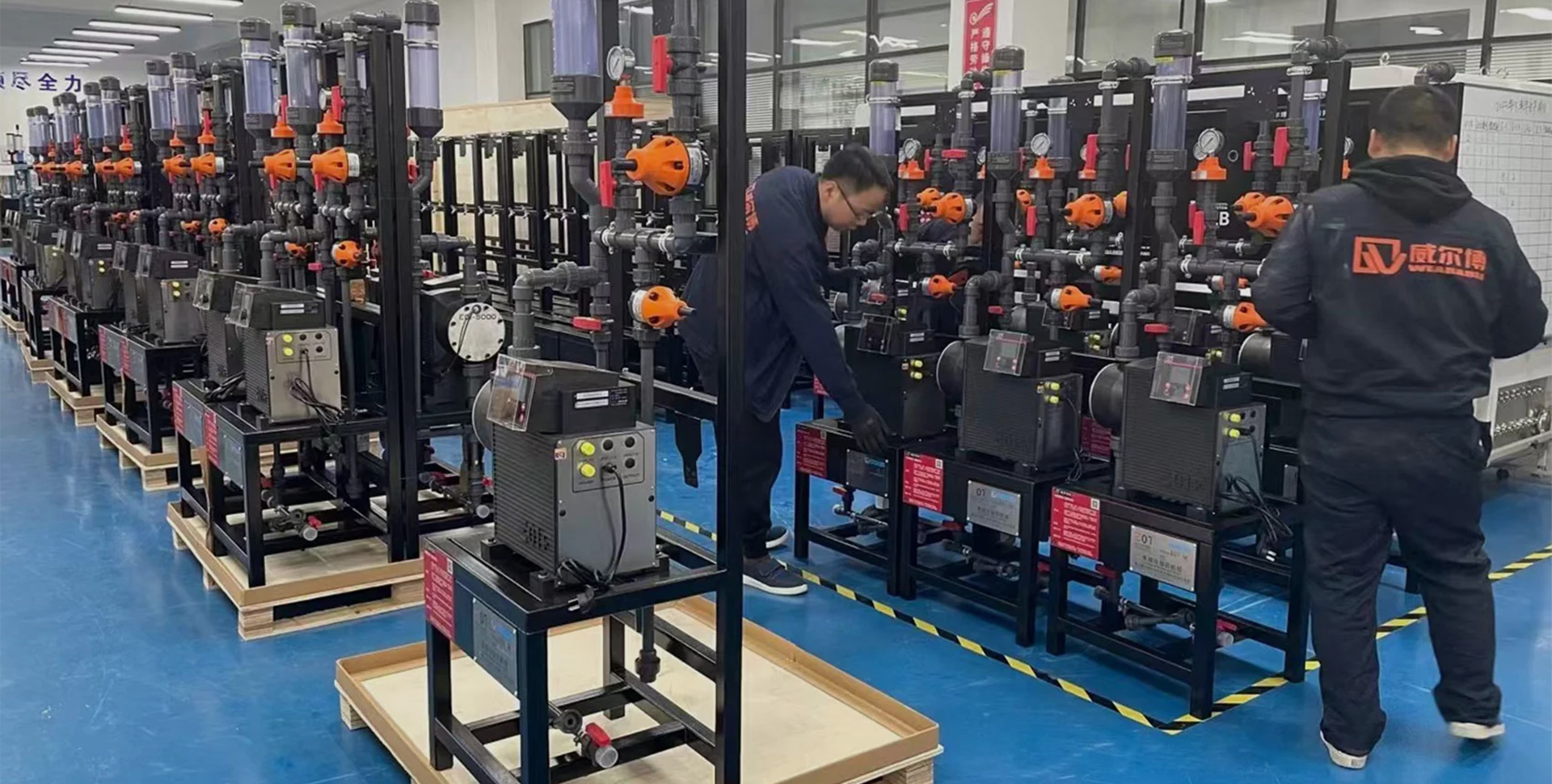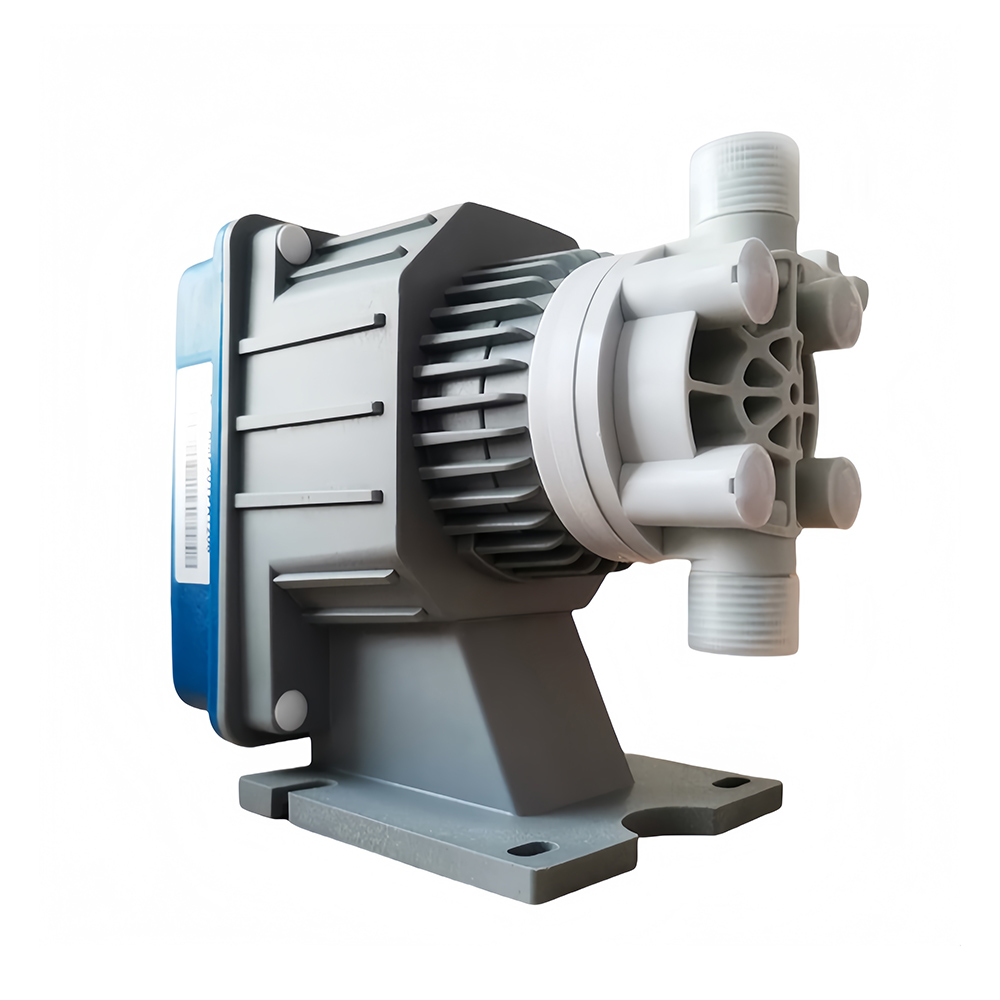Understanding Electromagnetic Dosing Pumps
Electromagnetic dosing pumps are essential tools in precision chemical dosing, widely applied in industries such as water treatment, energy materials, chemical processing, and manufacturing. These pumps rely on a solenoid-driven mechanism to deliver accurate, pulse-controlled quantities of chemicals, making them indispensable for both continuous and batch dosing tasks.
Electromagnetic dosing pumps are typically selected for applications requiring high accuracy, stable repeatability, and superior chemical compatibility—especially when handling corrosive, oxidizing, or sensitive fluids. Their compact structure, simple maintenance needs, and excellent controllability make them one of the most reliable solutions in modern fluid-handling systems.
Typical applications include:
Water and Wastewater Treatment: Dosing disinfectants, coagulants, pH adjusters, and anti-scalants.
Chemical and Smelting Operations: Metering acids, alkalis, and conditioning agents.
Bio-Energy Systems: Handling enzyme additives and biological agents with high precision.
Electronics & New Energy: Additive dosing for lithium battery materials or copper foil surface treatment.
Industrial Cooling Systems: Metering corrosion inhibitors, dispersants, and biocides.
Their ability to deliver consistent flow under varying pressure conditions makes them ideal for automated or unmanned dosing environments.
Key Considerations When Selecting an Electromagnetic Dosing Pump
1. Chemical Compatibility: Ensuring the correct material selection prevents diaphragm swelling, valve degradation, and premature pump failure.
2. Dosing Accuracy and Control: These features allow precise chemical delivery even under fluctuating system pressures, making them ideal for proportional dosing and automated process control.
3. Seal Design and Leak Prevention: Electromagnetic dosing pumps rely on diaphragm technology rather than dynamic mechanical seals. This eliminates sliding friction and significantly reduces leakage risk.
Available sealing options may include:
PTFE multilayer diaphragms for long chemical resistance
Double diaphragm designs for hazardous chemical isolation
Valve assemblies optimized for high-viscosity or gas-forming liquids
4.Flow Rate and System Pressure Needs: Electromagnetic dosing pumps maintain accuracy even at micro-dosing levels, making them ideal for precise additive injection.
Why Our Electromagnetic Dosing Pumps Are Highly Recommended
Electromagnetic dosing pumps offer several distinct advantages compared with other metering pump technologies:
High metering accuracy with stable repeatability
Minimal maintenance due to fewer moving parts
Excellent chemical resistance with PTFE-based diaphragms
Compact, lightweight structure for easy installation
Immediate response to control signals for automation systems
Suitable for micro-dosing applications where precision is vital
Their combination of accuracy, reliability, and ease of use makes them ideal for continuous chemical injection tasks in industrial processes.
Frequently Asked Questions About Electromagnetic Dosing Pumps.
Q1: What is the accuracy of your digital metering pumps?
A1: Our pumps have an accuracy of ±0.24%, certified by national professional institutions.and we possess the corresponding certification documents.
Q2: What materials are used in the pump construction?
A2: We use high-quality materials such as PTFE, PVC, and stainless steel , ensuring durability and chemical resistance.
Q3: Can your pumps handle corrosive chemicals?
A3: Yes, our pumps are designed to handle a wide range of corrosive and abrasive chemicals.



